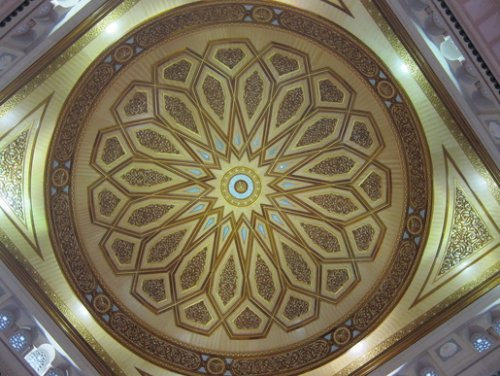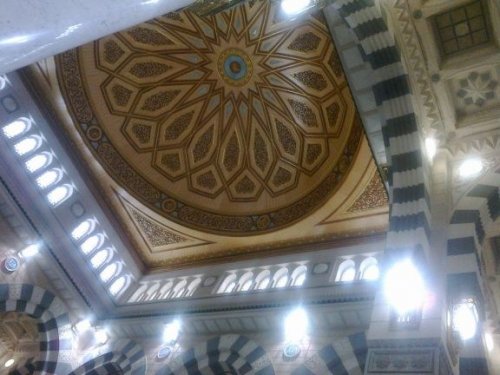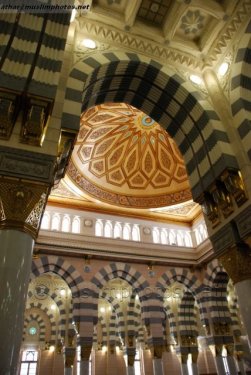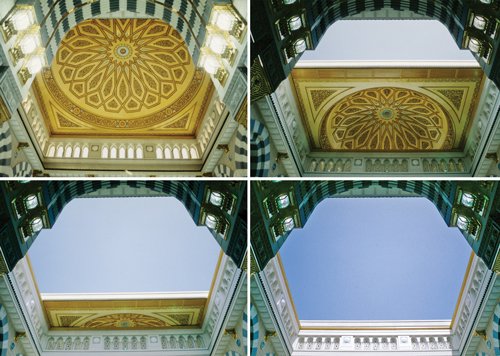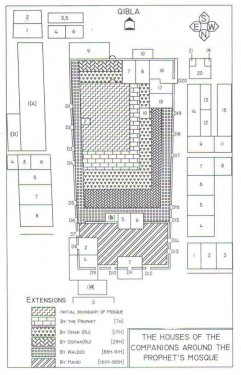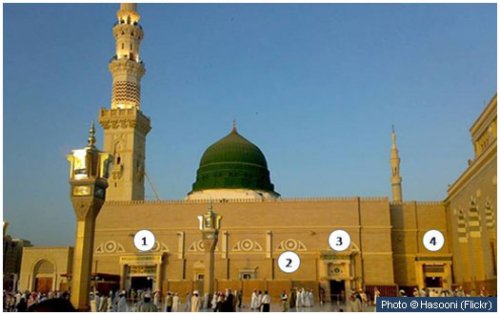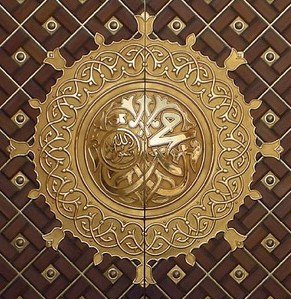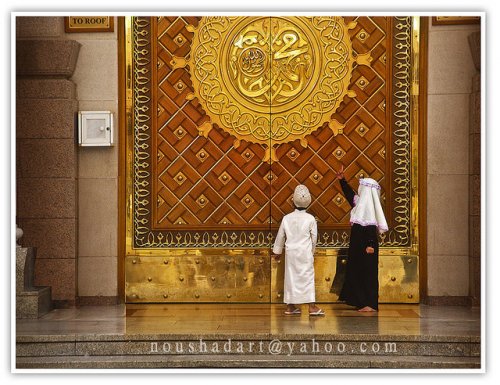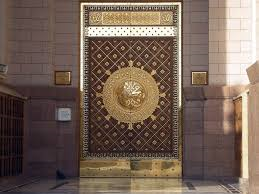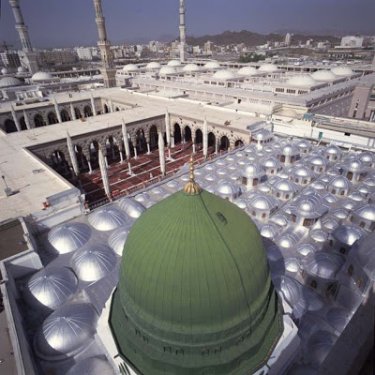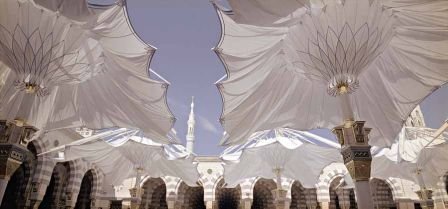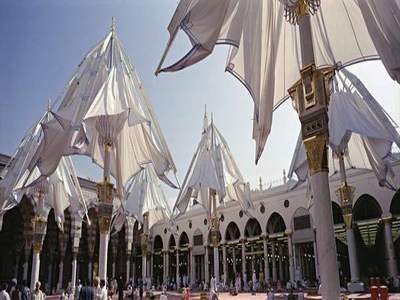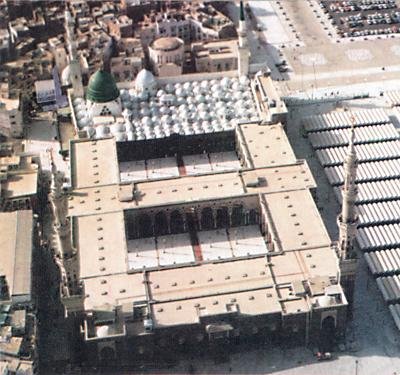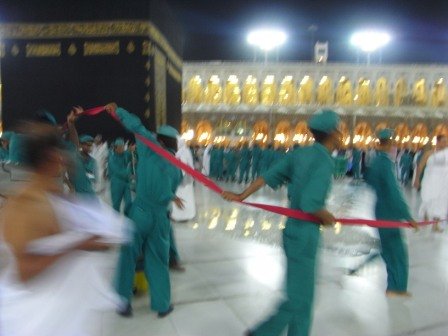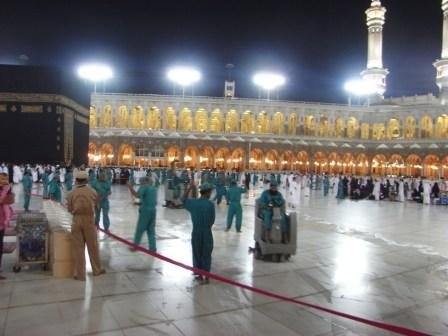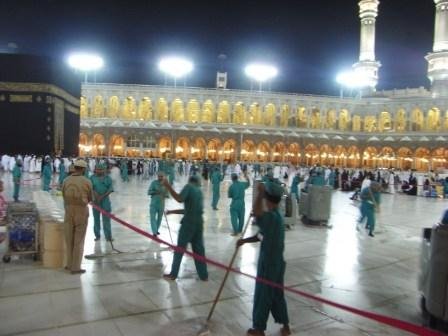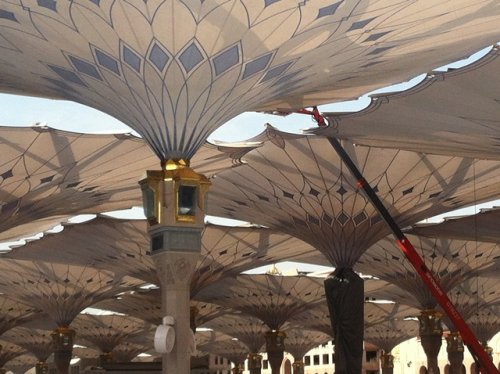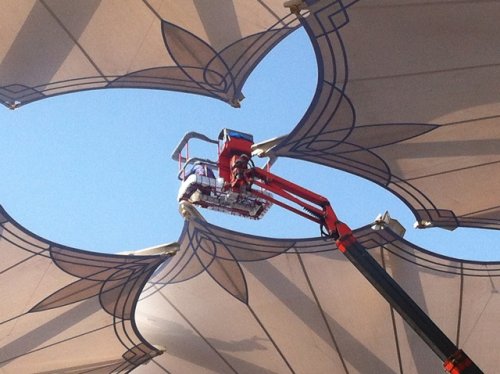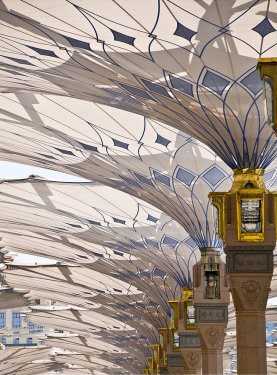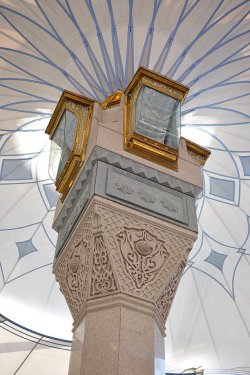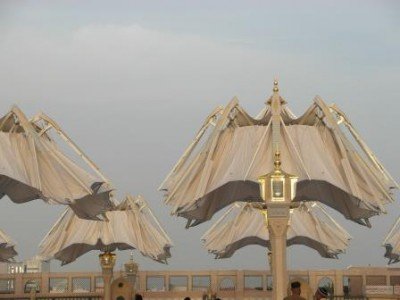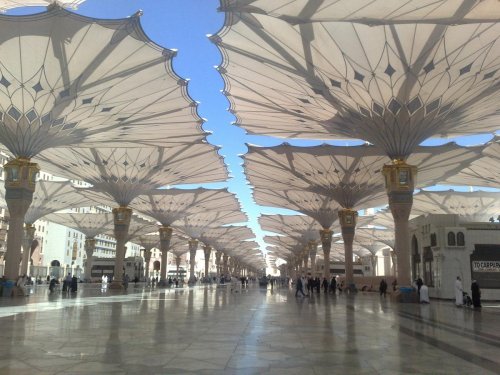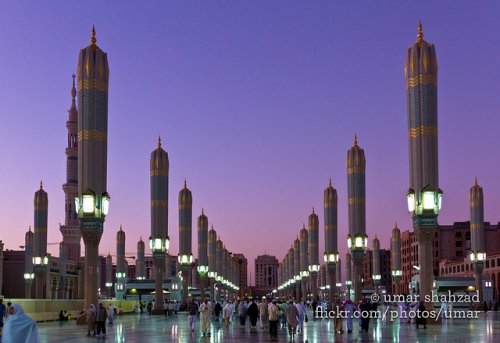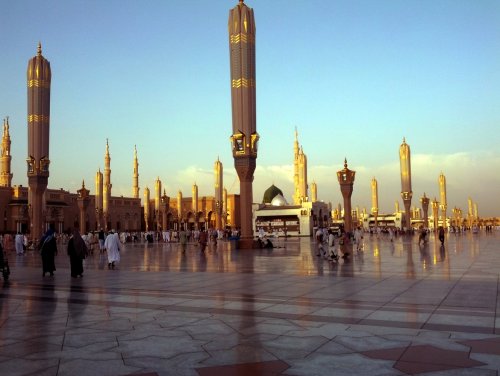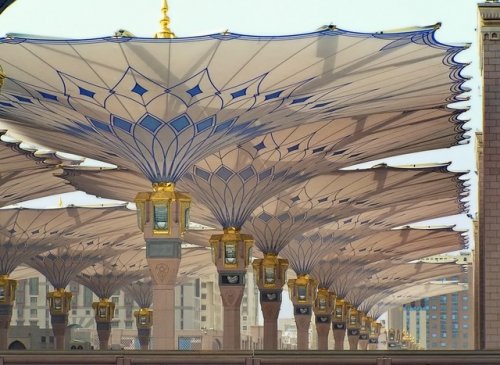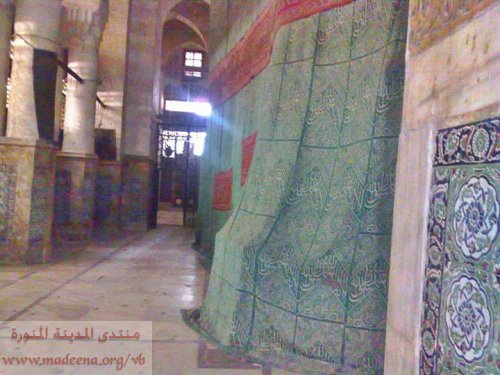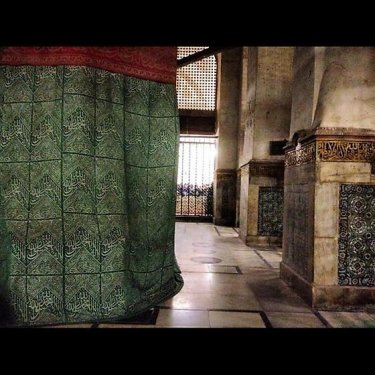-
Posts
8,434 -
Joined
-
Days Won
771
Content Type
Profiles
Forums
Events
Everything posted by ummtaalib
-
'Umar bin Abu Salamah (May Allah be pleased with him) reported: Messenger of Allah sallallaahu 'alayhi wasallam said to me, "Mention Allah's Name (i.e., say Bismillah before starting eating), eat with your right hand, and eat from what is near you." [Al-Bukhari and Muslim]. 'Aishah (May Allah be pleased with her) reported: Messenger of Allah sallallaahu 'alayhi wasallam said, "When any of you wants to eat, he should mention the Name of Allah in the begining, (i.e., say Bismillah). If he forgets to do it in the beginning, he should say Bismillah awwalahu wa akhirahu (I begin with the Name of Allah at the beginning and at the end)." [At-Tirmidhi and Abu Dawud].
-
Asslamo Allaikum, 38 year old Zareen Shaukat daughter of Br Khalid Shaukat (moonsighting.com) is in need of Kidney transplant. She is unemployed and her father's insurance won't cover her Health needs. She is in urgent need for a Kidney, if you are able to donate please email [email protected] She is in urgent need of $200,000 and money can be donated through this site Please make dua, **urgently** propagate this message and assist financially as best as you can. 19SEP2013 (14:00 GMT): I have discussed and confirmed it directly with Br Khalid Shaukat (moonsighting.com) via email Jazakallahu Khairun http://www.muftisays.com/forums/27-sharing-portal/7777-urgent-appeal-for-zareen-shaukat.html
-
Sliding Domes of Masjid Nabawi There are twenty seven sliding domes, the diameter of each is 14.7 metres and weigh 80 tons. They have an outside ceramic finishing made of Maple and Moroccan wood. The moving time for each is one minute electrically and thirty minutes manually. "Women's Guide in Madinah Munawwarah" Mufti Muhammad Faruq This picture was posted by Roukaya19 on muftisays.com A Dome Closing
-
Details of the Doors of Masjid Nabawi Click on picture to enlarge to see the position of the doors - marked D1, D2 etc. Omar bin Abdul Aziz (RU) installed twenty doors during the extension of the Prophet’s Mosque in 91 Hijrah. Eight of these doors were in the eastern wall. Similarly eight doors were in western wall of the Mosque. Remaining four doors were in the northern wall of the mosque. When Caliph Mehdi Abbasi further extended the Mosque in 165 Hijrah, he did not install any additional door. However, the location of these doors was somewhat changed as needed. Many historians have described the surrounding of the Mosque with reference to these twenty doors of Mehdi extension. Most of these doors assumed their names from the names of the companions or other persons whose homes happened to be situated near that door. Hence these doors were very helpful for the earlier scholars in searching for the location of various houses around the Mosque. It will, therefore, be very appropriate to describe these twenty doors one by one to make ourselves familiar with them. Eastern Doors Door No.1: It was called Bab-un-Nabi. This name does not mean that Prophet Mohammad (SAS) used to enter and leave his home through this door. In fact this door did not exist at the time of the Prophet (SAS). This door, however, assumed above name since it happened to be opposite to the Hujrah of Aisha (RUA). This door was closed during a later extension and a window was installed at its location. This window still exists in the eastern wall of the mosque and has the following writing on top of it. Al-Ahzab # 56 Allah sends His Graces on the Prophet (SAS) and also His Angels ask Allah to bless him. O you who believe! Send your Salat on him (ask Allah to bless him) and greet him with the Islamic way of greeting. Door No. 2: It was called Bab Ali since it was located opposite to Ali’s (RU) Hujrah. This door was also closed during a later extension and a window was also installed at its location. This window can be seen in the eastern wall of the present mosque. These two windows are between Bab Jibreel and Bab Baqee. Door No. 3: It was called Bab Jibreel and it does exist even now. Door No. 4: It was called Bab-un-Nisa and it does exist even now. Door No. 5: This was opposite to the house of Asma bint Hussain bin Abdullah bin Obaidullah bin Abbas (RU). Door No. 6: This door was opposite to the house of Khalid bin Waleed (RU). The following wording was written inside this door This extension is made by the order of Caliph Mohammad Mehdi Abbasi and was carried out by the workers of Basra during 162 H. This is where the Mehdi extension starts. (History of Madina by Ibn Shubba and Vafa-ul-Vafa) Door No. 7: This door was opposite to the route leading to open space used for toilet needs by women of Madina. Door No. 8: This door was opposite to the houses built on donated land. This was the last door in the eastern wall. Northern Doors Door No. 9: It was opposite to the house of Hameed bin Abudur Rehman bin Auf (RU). Door No. 10: It was opposite to the house of Abu Algais bin Mugheera. Door No. 11,12: Both these doors were opposite to the Hujrah of Caliph’s freed slave Khalisa. Western Doors Door No. 13: This was opposite to the house of Abdullah (RU) son of Jaafar bin Abi Talib. Door No. 14: It was opposite to house of Munira. Door No. 15: It was opposite to the house of Sakina bint Husain (RUA). Door No. 16: It was opposite to the house of Hassan bin Thabit (RU) who was a famous poet at the time of the Prophet (SAS). Door No. 17: It was called Bab Rahmat and it does still exist. Door No. 18: This was between Bab Abu Bakr (RU) and Bab Rahmat and was on the site of Bab Ziyad. Door No. 19: It was known as Bab Abu Bakr and it does still exist. Door No. 20: It was called Bab-us- Salam and it does still exist. Dr Imtiaz Ahmed
-
Doors on the Eastern Side This is a view of the eastern wall of Masjid-e-Nabwi showing current prominent doors, some of which were used at the time of the Prophet (peace and blessings of Allah be on him). 1. Bab-e-Baqi (Door of Baqi) This door was installed in 1408 AH and is exactly opposite to Bab-e-Salaam which is on the western side. This door is to facilitate the flow of people leaving the masjid after giving salutation to the Prophet (peace and blessings of Allah be on him) and his two companions. 2. Funeral place The Prophet (peace and blessings of Allah be on him) used to lead Salat-ul-Janaza at this site and the Sahaba continued this tradition. Abu Saeed Khudri (may Allah be pleased with him) described how and when this place was used for funeral services: “In the very beginning we used to inform the Prophet (peace and blessings of Allah be on him) when someone was near death. The Prophet (peace and blessings of Allah be on him) used to visit the ailing person and made supplication for his forgiveness. Many times the Prophet (peace and blessings of Allah be on him) stayed there till the completion of the funeral services. In this way the Prophet (peace and blessings of Allah be on him) had to wait there for a very long time at each such occasion. We, therefore, decided to take the body of the deceased person near the Hujrat (houses of the wives of the Prophet) so that the Prophet (peace and blessings of Allah be on him) can lead the salat more easily. The Prophet (peace and blessings of Allah be on him) started offering Salat-ul-Janaza in the area described above.” The Turks built an enclosure around the funeral courtyard which used to be open to worshippers. Recently however, it is used as a storage space for materials needed in Masjid-e-Nabwi. 3. Bab-e-Jibraeel (Door of Jibraeel) This door is also called Bab-un-Nabi since the Prophet (peace and blessings of Allah be on him) used to enter the masjid through this door. Jibraeel (upon him be peace) came to the Prophet (peace and blessings of Allah be on him) after the battle of Ahzab (the battle of the Confederates and also known as the battle of the Trench), and talked to the Prophet (peace and blessings of Allah be on him) at the door step of Bab-e-Jibraeel. It is mentioned in Bukhari as narrated by Aisha (may Allah be pleased with him), “After the battle of Ahzab, the Prophet (peace and blessings of Allah be on him) disarmed himself and took a bath. In the meanwhile, Jibraeel (upon him be peace) came riding a pony and talked to the Prophet (peace and blessings of Allah be on him) near the door step of of Bab-e-Jibraeel. Jibraeel (upon him be peace) said to the Prophet (peace and blessings of Allah be on him), “You have put away your arms but we (the angels) are still in battle uniforms. So you should come with us to attack the tribe of Banu Qurayza.” Aisha (may Allah be pleased with her) added, “I was looking at Jibraeel (upon him be peace) through the cracks in the door of my hut. Jibraeel (upon him be peace) was covered with dust.” 4. Bab-un-Nisa (Door of the Women) Umar (may Allah be pleased with him) expanded the masjid during 17 AH. He built this door at the end of eastern wall of the mosque. Women used to enter the masjid from this door and offered their salat in the last rows and thus were able to avoid contact with men. Abu Dawud mentioned that Umar (may Allah be pleased with him) said, “We should let the ladies use this door exclusively.” References: History of Madinah Munawwarah – Dr. Muhammad Ilyas Abdul Ghani islamiclandmarks.com
-
-
"Pointing" in the second last line needs an "n" Jazakallaahu khayran bro...very informative and beneficial
-
No I don't. I came across this and since it was a common question I added it. If you have any other information, please do add.
-
Open Courtyard inside Masjid Nabawi Ariel view showing the two open courtyards From AlMiskeenah These two photos (grabbed from online long ago…(apologies for not knowing who to thank for these) are of some of the six existing umbrellas in the two open courtyards inside Masjid Nabawi
-
Haram Cleaners in Action SubhanAllah, the area that Masjid al-Haram occupies on the earth must be the cleanest patch of land on the entire globe. Armies of diligent cleaners, brothers and sisters, are dusting, polishing, mopping, sweeping, vacuuming, washing and picking up all that is dropped 24/7. The efficient routine never ceases, and the care and love seen on all contibuting to this task is admirable. Their presence is evident in every direction one gazes; high above scaffolding meticulously cleaning each and every architectural feature and light fittings to all surfaces below. The antics of the brothers in the turquoise uniforms as they are engaged in the major cleaning mesmerize. Children laugh excitedly, adults stare in amazement as if watching a skillfully choreographed ballet. The display of dexterity and nimbleness as they contol all the props is a performance of agility and devotion, and a mastery of organization. ALMISKEENAH
-
Question: Is it allowed to wear different colours scarfs with a black abaya? Can we wear a black abaya with black designs on it? Is it allowed to wear a hoodie/sweater on top of the abaya? Answer:In the Name of Allah, the Most Gracious, the Most Merciful. As-salāmu ‘alaykum wa-rahmatullāhi wa-barakātuh. The dress of a woman should: 1) Conceal the body. 2) Be loose so that it does not reveal the shape and form of the body. 3) The dress should not attract the attention of men, for example having bright colours etc. According to the principals outlined above, it will be permissible for a woman to wear coloured scarfs , and abayas with black designs and hooded sweaters as long as they do not violate any of the above mentioned conditions. If any form of dress dose not confirm to these conditions, it will not be permissible. And Allah Ta’āla Knows Best Checked and Approved by, Mufti Ebrahim Desai. idealwoman.org
-
Question: How long can a mother breastfeed her child? Answer:In the Name of Allah, the Most Gracious, the Most Merciful. As-salāmu ‘alaykum wa-rahmatullāhi wa-barakātuh. The maximum time period for breast feeding is two lunar[1] years[2]. And Allah Ta’āla Knows Best Checked and Approved by, Mufti Ebrahim Desai.
-

Tragedy Of The Leicester Fire Deaths
ummtaalib replied to ummtaalib's topic in General Islamic Discussions
Welcome!! Jazaakillah for sharing! -

WOMEN - Tawāf Al-Ziyārah & Haydh (Menstruation)
ummtaalib replied to ummtaalib's topic in Hajj/Umrah
Hanafi Fiqh > Darulifta-Deoband.org My daughter performed haj with us last year during mina stay after arfat day she started menstural bleeding she was prevented from performing tawafe ziyarah. she performed sai and came back with us on 14 dulhijja.Whether her haj is valid? Answer (Fatwa: 913/596/H=1432) Her hajj was not complete rather she is still in the state of ihram. First of all, you (father) or any mahram should take her to perform tawaf ziyarah, only then her tawaf shall be done. Also, a dam (slaughtering an animal) shall be wajib due to delay. Rather if she has committed jinyat (an act against the ihram,) during this period, write it to us. Note: The answer is correct. Also, it should be noted that if your daughter is married then it shall not be lawful for her husband to have intercourse with her until she goes Makkah and performs tawaf. (Z) Allah (Subhana Wa Ta’ala) knows Best Darul Ifta, Darul Uloom Deoband -

How Should A Menstruating Woman Perform Hajj?
ummtaalib replied to ummtaalib's topic in Fiqh of Menstruation
Question Can i perform hajj including umrah whilst I am on my monthly menstrual cycle. Please state what i am allowed to do and what i am not allowed to do whilst on my period. Answer Bismillah Al-jawab billahi at-taufeeq (the answer with Allah’s guidance) Yes, you can perform all the rituals of Umrah and Hajj except Tawaf and Salah. Bukhari, Chapter: A menstruating woman will perform all the rituals of Hajj except Tawaf. A’ta says, Jabir (RA) narrates that A’isha (RA) was in the state of menstruation and she performed all of the rituals of Hajj except Tawaf and Salah. Narrated ‘Aisha: We set out with the Prophet for Hajj and when we reached Sarif I got my menses. When the Prophet came to me, I was weeping. He asked, “Why are you weeping?” I said, “I wish if I had not performed Hajj this year.” He asked, “May be that you got your menses?” I replied, “Yes.” He then said, “This is the thing which Allah has ordained for all the daughters of Adam. So do what all the pilgrims do except that you do not perform the Tawaf round the Ka’ba till you are clean.” (Al Kutub us Sitta, Bukhari, Book 6, Pg. 26) And Only Allah Ta’ala Knows Best. Moulana Qamruz Zaman London, UK -
The Courtyard Umbrellas The Courtyard Umbrellas in Masjid-e-Nabawi Mubarak are open from sunrise till Maghrib and then closed in the evening Closed Opening Opened Pictures from Below Being Cleaned
-
Question: I want to know with regards reading forty Salah in Masjidun Nabawy,what are the rewards? Answer: In the Name of Allah, the Most Gracious, the Most Merciful. As-salāmu ‘alaykum wa-rahmatullāhi wa-barakātuh. Hadhrat Anas (Radhiallahu Anhu) reports that Rasulullah Sallallāhu Alayhi Wasallam said: Whoever performs forty Salah in my Musjid(in succession),not missing any Salah, he is guaranteed freedom from Hell fire, redemption from punishment and he becomes immune to hypocrisy.”(Majma’uz Zawaaid) And Allah knows best, Mufti Ebrahim Desai Idealwoman.org
-

General Advice For Those Going For Haj And Umrah
ummtaalib replied to ummtaalib's topic in Hajj/Umrah
Reminders For The Hujjaj Here are some beneficial reminders for our brothers and sisters performing Hajj this year… 1. Intention: There is a Hadeeth which states, in the latter days, the people will go for hajj but their object will be four. The rulers will go to increase their power, the rich for trade and commerce, the poor for begging and the learned for name and fame. These things can be earned but if Hajj is performed with these objects, no reward is acquired for Hajj. Therefore first and foremost we must rectify and polish upon our intentions. 2. Virtues: The prophet (salallahu alaihi wasalam) said, “There is no reward except paradise for an accepted hajj.” He (salallahu alaihi wasalam) also said, “He whose sins are greatest is a person who thinks at Arafah that Allah has not forgiven his sins.” Subhanallah these two Ahadith are sufficient to explain the extensive reward and forgiveness Allah offers a sincere Pilgrim. 3. During hajj: -Good deeds: One good deed in Makkah brings 100,000 rewards. As for Madinah, the Prophet (salallahu alaihi wasalam) said, one prayer in my mosque brings rewards one thousand times more than the prayer in other mosques except the mosque of Makkah. This is true in the case of all good deeds done here. -Tawaaf: Rasulullah (salallahu alaihi wasalam) said, “Make much Tawaaf because it is such a great thing that you will find it in your book of deeds on the day of resurrection and for which people will envy you. “ -Sins: Sinning in the blessed lands is far more detrimental then sinning elsewhere thus we should remain extra cautious. Hadhrat Ibn Masud (radhiallahu anhu) said, there is no such city except Makkah wherein the people will be punished for niyyat before actions. Then he read this verse, “If a man wishes therein to do extensive oppression, he will be given grievous punishment.” This is only for the Kaabah. -Patience: Bear with pleasure sacrifices of the loss that is caused in the matter of properties or the occurrence of any calamity, because it is a proof of the acceptance of hajj. The troubles and calamities on the way to pilgrimage are like expense in the way of Allah and the expense of a dirham at that time is equal to the expense of 700 dirhams. That is the reward of bearing hardships in the way of jihad. Return: Hadhrat Umar (radhiyallahu anhu) said, a pilgrim is forgiven and also the man for whom he seeks forgiveness in Dhul Hijjah, Muharram, Safar or the first part of Rabiul-awal. Take advantage of such accepted prayers! Signs of acceptance: Last but not least…It is said that if one gives up sins and bad company and takes up good company and gives up the assembly of useless talks and takes to the assemblies of zikr, they are the signs of acceptance of hajj. May Allah accept the Hajj of all the blessed pilgrims and allow them to experience the signs of acceptance immediately upon return. Ameen (Derived from the teachings of Imam Gazzalis Ihyaa Ulum-ud-Deen) idealwoman.org -
Question: If one does the last circuit of Sa’ee without wudhu, is the sa’ee valid? Answer: In the Name of Allah, the Most Gracious, the Most Merciful. As-salāmu ‘alaykum wa-rahmatullāhi wa-barakātuh. Wudu is not a condition for the validity of Saee. However, it is Mustahab (preferable) to be in the state of wudu while performing Saee.[1] And Allah Ta’āla Knows Best Checked and Approved by, Mufti Ebrahim Desai. idealwoman.org
-
Queries and Conditions Concerning Female Pilgrims 1. All travel must be carried out in the presence of ha husband or Mahram (to whom marriage is absolutely prohibited e.g. father, son, grandfather, grandson, maternal uncle, paternal uncle and nephew). However, if a Mahram is non-existent then the female should secure a wasiyat for her Hajj to be performed after her death. This is Wajib!. If a woman is in her period she will be excused from this tawaaf. If you had performed a nafl tawaaf after Tawaaf -e-Ziyarah, that can also be accepted in place of Tawaaf -e-Wida. If you remain in Makkah for sometime after Hajj, then make the most out of your valuable time. Try to perform as many Umrahs as possible and attend for the salaah in Haram Shareef. May Allah accept your Hajj and accept us all. AMEEN. 2. Women can wear any kind of clothing for Ihraam with no restriction regarding colour, however it is wajib to cover the head. NOTE: Thin or semi-transparent or tight fitting clothing is prohibited. 3. No clothing should come into contact with the face, therefore whilst observing the purdah /hijab, the niqab should be worn so that it is slightly raised from the face however still concealing it. 4. It has come to our knowledge that the use of a small scarf to cover the hair is understood to be a part of `Iharaam'. This belief is however incorrect. 5. The recitation of the Talbiyah (Labbaik) of a female pilgrim must not be audible by other pilgrims and therefore it should be recited quietly. 6. It is preferable for female pilgrims to be selective of the times i.e. the night in which they carry out the tawaaf and the duties whilst at Arafaat and Muzdalifah (inc. rami). Even so where there is no choice of time the female pilgrim should refrain from joining the heart of the crowd or pushing and brushing against fellow pilgrims. 7. It is forbidden for female pilgrims to carry out ramal (brisk walking whilst in tawaaf ) and the running within the `green light zone' when carrying out saee. 8. If menstruation should occur before the Ihraam stage, it is preferable to bathe and then carry out the obligatory `Ihraam'. Due to menstruation the tawaaf and the saee are not to be carried out. All other proeedures regarding Hajj must be observed and then after menstruation is over the tawaaf and saee must be recovered. NO COMPENSATION IS DUE FOR DELAY. 9. If menstruation continues over the period in which `Tawaafe-Wida' is to be carried out, the `Tawaaf-e-Wida' becomes omitted. 10. After Ihraam, the cutting of hair is often cut in the presence of a `Ghair Mahram', however this is forbidden and should be refrained from. 11. When visiting the sacred grave at Madinah, all pilgrims should ensure that they do not quarrel or fight. Females should pray in a quiet tone so as not to be disrespectable. 12. Performing 1 obligatory salaah at Masjid-e-Haraam reaps the reward of 100,000 salaah. However, this applies only for men. Thus, for women it is preferable to perform salaah within the privacy of one's compartment /home. http://www.inter-islam.org/condex.htm
-
After the blessed pilgrimage (hajj) How fortunate are these souls who are blessed with the following words from Rasoolullah sallallahu alayhi wasallam: “Whoever performs Hajj for the Pleasure of Allah and therein utters no word of evil, nor commits any evil deed, shall return from it (free from sin) as the day on which his mother gave birth to him.” (Bukhaari, Muslim) “Verily there shall be no reward for a Mabroor Hajj except Jannah.” (Bukhaari, Muslim) It is hoped that all the pilgrims were sincere in their intentions and had traveled thousands of miles only to secure the Pleasure of Allah by fulfilling the obligation laid down upon them. May Allah the Almighty grant all the pilgrims acceptance and grant them opportunity again and again to visit the Sacred bud. Aameen. Nevertheless, we wish to draw the attention of the pilgrims towards certain points which are necessary and of utmost importance to observe and for which many pilgrims are seen neglectful of their significance. 1, the sincerity of intention should remain even after the performance of Hajj. There should be no pomp or show. One should not wish to be called or recognized as a Haajee. Many people adopt the habit of talking frequently about their journey in order that people may come to know of their Hajj. They talk about the expenses incurred in the way of Allah, their charity amongst the poor and needy, their devotion and worship, their assisting the weak and old, etc.; and all is mentioned only with the intention of gaining fame. This is a deceit from Shaytaan who ruins the ibaadat without the person even knowing. It is therefore of great importance that the pilgrim does not talk about his Hajj without necessity as it may lead to ‘Riyaa’ (show, insincerity). However, if necessity arises and one must talk about his Hajj then he is at liberty to do so. But, he must not indulge in this type of conversation unnecessarily. 2, it is noted through experience, that many pilgrims return with only the bad side of the journey and make it a habit of talking about nothing except the hardships they have encountered during Hajj. The pilgrims should strictly refrain from this. On the contrary they should talk about the greatness of the sacred places, the spiritual gains, the enjoyment in devotions of Haramayn – Umrah, Tawaaf, Salaam on the Sacred Grave, Salaat in Masjid-ul-Haraam and Masjid-un-Nabawi etc. If one looks at his journey of Hajj carefully he will find that the good things far outweighs the bad. Every second spent in these sacred places is incomparable with anything in the world. The journey of Hajj is a long journey; one has to travel by air, pass the immigrations, go through the customs, encounter people who speak foreign languages, etc. In these circumstances, difficulties are certain to arise. when we travel in our country do we always travel with comfort and ease? Do we never encounter difficulty? Do we not find ourselves held up in traffic for hours on a Motorway? Considering the fact that 2 – 3 million pilgrims perform the rituals of Hajj at one time, in one place and that they all come from different countries and backgrounds and that many of them have never before used or seen the facilities available to them. We think the difficulties encountered are insignificant. Moreover, the pilgrims are rewarded abundantly by Allah Ta’aala upon every difficulty encountered in their journey whereas tile same is not tile case whilst we are on another journey. Those people who engage in these types of conversation become the cause of discouragement to others who have not yet had the opportunity to perform Hajj. These unfortunate pilgrims fall into the category … and who stop (men) from the way of Allah, and from the Sacred Masjid, … mentioned in Surah Hajj in the Qur’aan. They should take heed that if people are discouraged by their conversation and postpone their Hajj then those who have discouraged them will be equally responsible. 3, the sign of a ‘Mabroor Hajj’ or an ‘accepted Hajj’ is that upon one’s return, his life changes from worst to good. He becomes totally punctual in fulfilling the commands of Allah Ta’aala. His love and inclination towards the Hereafter increases and love for the worldly pleasures decline. Therefore, it is essential that the pilgrim is watchful over his actions and should try his utmost to instill in himself good characters and refrain from all types of evil. He should try his best to fulfill the obligations laid down by Allah and avoid all the things forbidden by Him. Source: Sunnah Organisation
-
http://tazkiyatips.blogspot.co.uk/2013/02/deeds-that-equal-reward-of-haj.html Since Haj is among the most virtuous deeds in Islam, and not everyone can afford it (especially on a continuous basis) Allah Subhanahu wa Ta’ala has attached the reward of optional (nafil) Haj to certain other deeds for the benefit of all. These deeds are: 1. Wudhu at home before proceeding for Salaah with Jamaat. عن أبي أمامة رضي الله عنه أن رسول الله صلى الله عليه وسلم قال من خرج من بيته متطهرا إلى صلاة مكتوبة فأجره كأجر الحاج المحرم ومن خرج إلى تسبيح الضحى لا ينصبه إلا إياه فأجره كأجر المعتمر وصلاة على إثر صلاة لا لغو بينهما كتاب في عليين رواه أبو داود (559) Sayyiduna Abu Umaamah (radiyallahu’anhu) reports that Rasulullah (sallallahu ‘alaihi wa sallam) said: “One who purifies himself (i.e, makes wudhu) and leaves his home to attend the fardh salaah in congregation receives the reward of a Haji in the state of Ihram, And if he leaves for the salaatu-Dhuhaa (Chaast) he gets the reward of ‘Umrah… (Sunan Abi Dawud, hadith:559) 2. Salatul Ishraaq عن أنس بن مالك رضي الله عنه قال قال رسول الله صلى الله عليه وسلم من صلى الغداة في جماعة ثم قعد يذكر الله حتى تطلع الشمس ثم صلى ركعتين كانت له كأجر حجة وعمرة قال قال رسول الله صلى الله عليه وسلم : تامة تامة تامة رواه الترمذي وقال حديث حسن غريب (586) Sayyiduna Anas Ibn Maalik (radiyallahu ‘anhu) reports that Rasulullah (sallallahu ‘alaihi wa sallam) said: “Whoever offers his Fajr salaah in congregation, and then remains seated making the dhikr (remembrance) of Allah until (approximately 15 mins after) sunrise after which he offers two rak’aats of salaah (Ishraaq), will receive the reward of one complete Haj and one complete ‘Umrah” (Sunan Tirmidhi, hadith:586 with a sound chain) N.B. Rasulullah (sallallahu ‘alaihi wa sallam) repeated the words: “complete” thrice. 3. Going to the Masjid to acquire Knowledge. عن أبي أمامة رضي الله عنه عن النبي صلى الله عليه وسلم أنه قال من غدا إلى المسجد لا يريد إلا أن يتعلم خيرا أو يعلمه، كان له كأجر حاج تاما حجته. رواه الطبراني في الكبير(7473) بأسناد لابأس به. كذا في الترغيب 1/104، وقال العراقي في تخريج الإحياء(4253): وإسناده جيد. وانظر المستدرك للحاكم 1/91. Sayyiduna Abu Umaamah (radiyallahu’anhu) reports that Rasulullah (sallallahu ‘alaihi wa sallam) said: “Whoever goes to the Masjid for the purpose of learning or teaching Knowledge, receives the reward of a Haji whose Haj was perfect. (Tabarani, hadith:7473 with a sound chain. See Targheeb vol.1 pg.104 & Takhreejul Ihyaa, hadith:4253) 4. Umrah in Ramadhan. عن ابن عباس أَنَّ النبى -صلى الله عليه وسلم- قال لاِمرأة من الأنصار يقال لَهَا أُمُّ سِنَان « ما منعكِ أَنْ تَكُونِى حَجَجْتِ معنا ». قالت ناضحان كانا لأَبى فلاَنٍ – زَوْجِهَا – حج هو وابْنُهُ على أحدهما وكان الآخر يسقى عليه غلامنا. قال « فعمرة فى رمضان تقضى حجة. أو حجة معى ». رواه مسلم (1256) Sayyiduna ‘Abdullah Ibn ‘Abbas (radiyallahu’anhuma) has reported that Rasulullah (sallallahu ‘alaihi wa sallam) passed by Ummu sinan while on his way to haj. “Why didn’t you accompany me for Haj?” he enquired. She said: “We only have 2 camels, one my husband has used to be with you in Haj, and the other is needed for transporting water.” Rasulullah (sallallahu ‘alaihi wa sallam) said: “ ‘Umrah in Ramadhan equals the reward of Haj with me”. (Sahih Muslim, hadith:1256) 5. To recite “Subhaanallah” 100 times in the morning and evening. عن عبد الله بن عمرو رضي الله عنهما قال قال رسول الله صلى الله علي وسلم: من سبح الله مائة بالغداة ومائة بالعشي كان كمن حج مائة مرة…الخ رواه الترمذي (3471) وقال: حسن غريب. Sayyiduna ‘Abdullah ibn ‘Amr (radiyallahu’anhuma) reported That Rasulullah said: “He who recites Subhaanallah 100 times in the morning and another 100 times in the evening is like one who performed Haj 100 times!” (Sunan Tirmidhi, hadith:3471 with a sound chain) 6. Serving one’s Parents: عن أنس رضي الله عنه قال أتى رجلٌ رسولَ الله صلى الله عليه وسلم فقال إني أشتهي الجهاد ولا أقدر عليه قال هل بقي مِن والديك أحدٌ قال أمي قال فاَبْلِ الله في برها فإذا فعلت ذلك فأنت حاج ومعتمر ومجاهد. رواه أبو يعلى(2760) والطبراني في الصغير والأوسط، وإسنادهما جيد. كذا في الترغيب. 3/315، ومختصرالإتحاف للبوصيري (5721) Sayyiduna Anas (radiyallahu’anhu) reports that a man came to Rasulullah (sallallahu ‘alaihi wa sallam) and said: “I wish to participate in Jihaad, but I cannot afford it” Rasulullah (sallallahu ‘alaihi wa sallam) enquired if any of his parents were alive, to which he said: “Yes! My mother is alive” Rasulullah (sallallahu ‘alaihi wa sallam) said: “Show Allah how you serve her. If you do so (duly) you will be like a: Haaji, a Mu’tamir (one doing ‘Umrah) and a Mujaahid (One striving in Allah’s way).” (Abu Ya’la, hadith:2760, and Tabarani with good chains.-Targheeb, vol.3, pg. 315 & Mukhtasar Ithaaf, hadith:5721) * Hafidh Ibn Rajab Al-Hambali (rahimahullah) has quoted other deeds that yield the reward of Haj from various Predecessors (i.e, not necessarily from the hadith). All of the following have been extracted from his priceless work: Lataaiful Ma’aarif, pgs.357-359. 7. Attending the Jumu’ah Salaah. Sa’eed ibnul Musayyab (rahimahullah) said: “Attending the Jumu’ah is better according to me than a nafl (voluntary) Haj.” Hafidh Ibn ‘Asaakir (rahimahullah) has quoted a similar virtue via Imam Al-Awza’i (rahimahullah)[1] 8. Attending the Eid Salaah. Some of the Sahabah [RA] have said: “Attending the Eidul Fitr Salaah equals the reward of ‘Umrah, and the Eidul Adha Salaah equals that of Haj.” 9. Esha Salaah in Congregation. A reliable Tabi’e, Uqbah ibn ‘Abdil Ghaafir (rahimahullah) said: “Offering the Esha salaah[2] in congregation equals the reward of Haj, and the Fajr in congregation equals ‘Umrah” 10. Fulfilling the need of a fellow Muslim. Imam Hasan Al-Basri (rahimahullah) said: “Your proceeding to fulfil the need a fellow muslim is better for you than one Haj after another!” (Also quoted By Zabeedi (rahimahullah) in Sharhul Ihyaa, vol.6 pg.292) * The fulfilment of all obligations. After citing the above, Hafidh Ibn Rajab (rahimahullah) writes: “The fulfilling of all obligatory deeds is considered better than Nafl (voluntary) Haj and ‘Umrah. This is due to (the Hadith in Sahih Bukhari which states that) the best way of attaining nearness to Allah is via the obligatory acts. However many people find it easy to carry out nafl Haj and ‘Umrah, but feel it difficult to fulfil the other responsibilities (Wajib acts) like repayment of debts and other such duties. * Abstinence from the haraam (forbidden) acts are also more virtuous than Nafl Haj etc. Some of the Pious predecessors said: “To abstain from an iota of wrong is better than five hundred (Nafl) Haj” Fudhail ibn ‘Iyadh (rahimahullah.) –the great sage of his age- said: “There is no Haj or Jihad that is more important than protecting one’s tongue” i.e, against sin. * Any act of Good during the first 10 days of Dhul Hijjah. Hafidh Ibn Rajab (rahimahullah) has rightly pointed out: “If the hadith has promised that any act of good done in these 10 days supersedes even the reward of Jihad, which is considered better than optional Haj too, that means all good done in these days will also supersede the reward of optional Haj.” (Pg.390) Notes: 1. The promises of “gaining the same reward as Haj” that are mentioned above, are restricted to the reward only. It does not mean that one upon whom Haj is obligatory can merely suffice on these deeds. (Sharh-Nawawi ‘ala muslim, hadith:1256 & Fathul Mulhim, vol.6, pg.123) 2. Imam Tirmidhi (rahimahullah) has quoted Imaam Is-haq Ibn Rahuyah (rahimahullah) as saying that this reward should be understood in the light of the hadith that explains surah ikhlaas to be equal to one third of the Quraan. (Sunan Tirmidhi, after hadith:939) i.e, one who recites it will receive the reward of reciting one third, but since he hasn’t physically done so the reward will not be multiplied. (Sharh Nawawi, vol.1 pg.271) The reward for physically doing an act is multiplied ten times and more in accordance to the sincerity, and sacrifice that accompanies it. Mufti Mahmudul Hasan Gangohi (rahimahullah) has also highlighted this in his Malfuzat. Furthermore, by memorizing/reciting surah ikhlas thrice, one does not become a hafidh of the entire Quran..! 3. The purpose here is not to discourage one from the actual Haj. Like they say: “There’s nothing like the real thing..” Allah Ta’ala knows best, and may He grant us all the tawfeeq (ability) to practice on the above, as well as afford us the opportunity to perform the real Haj repeatedly. Ameen. References: [1] Hafidh Ibn Rajab (rahimahullah) also supported this content with 2 ahadith. [2] A narration of Baihaqi’s Shu’abul Iman states: Sayyiduna Anas (radiyallahu ‘anhu) reports that Rasulullah (sallallahu’alaihi wa sallam) said: “Whoever offers his Maghrib Salah in congregation, receives the reward of one accepted Haj and ‘Umrah” (Shu’abul Iman, hadith:9304 & Ad-Dailami, hadith:5676. ‘Allamah ‘Iraqi (r.a.) has classified the chain as weak. (Takhreejul Ihyaa, hadith:1168) However, when viewed in the light of the above narrations and the explanation of Hafidh Ibn Rajab (rahimahullah) which follows, it acquires enough support. Also see Sharhul Ihyaa, vol.5, pg.127. www.al-miftah.com/2012/09/17/deeds-that-equal-the-reward-...
-
“Imagine a person is in the last throes of life. Around him are his three brothers. One of the brothers says to him, ‘Dear Brother, I will be able to assist you only until you die, but after your death I will be able to do nothing for you.’ Hearing this, the second brother says, ‘Dear Brother, I will serve you day and night until you die. When you die I will serve the guests who come to the funeral and I will praise you after your death.’ The third brother then says, ‘Dear Brother, until your death I will be able to do nothing, but as soon as your eyes close I will be with you in the grave. I will keep you company in the dark and I will keep the snakes and scorpions away from you and ensure that you reach your destination safely.’ Which brother will the dying man love and value the most? The Prophet sallalhu alayhi wasallam has mentioned the same concept in a ḥadīth that a person is followed to the grave by three things: his family, wealth and deeds. The family and wealth return and it is only the deeds that stay with a person. It is obvious that if the person had performed good deeds then these will be of great value to him and will ensure that he reaches his destination of Jannah with ease and peace.” Courtesy of In Shaykh's Company: a blog maintained by the students of Shaykh Muhammad Saleem Dhorat hafizahullah www.shaykh.org
-
Shaykh Hakeem Muhammad Akhtar Saheb R.A. The life of one who is cut-off from Allah swt is like that kite whose string has been severed and is fluttering aimlessly in the air.
-
Curtains inside the Sacred Chamber Details of various curtains that once graced the Hujrah, the Honoured Room of the most honoured of creation, Muhammad SallAllahu alaihi wasallam. Almutawaj belkaram - The one crowned with miracle Almuzallal belgham - The one shaded by clouds Allah’s peace and blessings be upon the Prophet and his family. Qur’anic verses and Salawaat adorn one of the curtains that used to surround the Abode of our Blessed Prophet SallAllahu alaihi wasallam. The first cover sent from Istanbul to Madinah, woven during the reign of Sultan Ahmad 1. Old covers would be sent back to Istanbul by the current Amir at the time and taken to the tomb of Abu Ayyub al-Ansari RadhiAllahu anhu where they would be displayed for some time before being sent to the Apartments of the Holy Mantle in the Topkapi Palace Museum. Some narrations say it was the mother of Haroon Rashid, the Abbasid Caliph (786-809 CE) who donated the first curtain for the Hujrah, others say it was the wife. And Allah the Almighty knows best. After that it was the Prime Minister of Egypt who ordered a white curtain decorated and embellished with Surah Yasin. Two years later the Caliph sent violet curtains with his name being the main motif! The next one recorded was black, which accompanied his mother when she came for Hajj, and then another sent to be placed over these two, forming three layers. Thereafter, every six years a Kiswa made of white silk embroidered with gold and silver from Egypt was provided. Kiswa al-Saadat, the Curtain of Bliss When the Ottomans were in control they established the green curtain with red and gold calligraphy features as above. Aisha's Chamber where the 3 Noble graves are located Shows the above curtain in full Detail of the above,bearing inscriptions and greetings of peace and praise for The Holy Prophet SallAllahu alaihi wasallam. These designs are stunning, not only for their artisitic merit, which is superlative, but for the fact that they all once veiled our Blessed Rasulullah SallAllahu alaihi wasallam! Allahu Akbar! All good is from Allah Ta’ala whereas mistakes are from this humble speck. May Allah Ta’ala Bless all readers, bringing you all closer to Him and His Rasul SallAllahu alaihi wasallam. May He accept our humble efforts and grant us the capacity to be good and do good. Ameen. Al-Miskeenah

